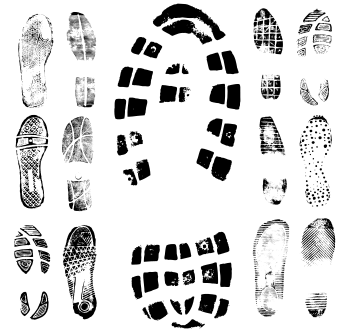Customer data has always been the backbone of a good marketing strategy, and as most company’s marketing is transitioning purely into the digital realm, so too have the means of gathering and using this data. In this article, we take a look at how data accumulation used to work, and how we can learn from it with what we currently do, as well as what to look forward to and be prepared for in the future.

Going way, way back, the only real way you could find out what your customers thought was by asking them in person. Of course, more recently this took a much more organised form in the style of questionnaires and written customer service addresses. Market research took the form of manually collating all of this data to find trends and then using that information to plan out your campaign.
Of course, this came with certain problems. For a start, you always had to rely on customers actively giving feedback. The best you could do was ask for information, but general customer attitude meant that this wouldn’t always result in getting as much information as you might like. As a result, the data you did get was most likely to only come from respondents who either had a strong affinity to your company, or who had a strong complaint to make.
Over time, marketing companies learned to factor this bias into the results found, and this meant that they could build an idea of what loyal customers looked like and where attention was best focused.

Modern data collection looks quite different, thanks to the advent of the internet, particularly search engines and social media. Now, rather than having to actively ask customers for information about themselves, a lot can be discovered about a person simply by their online behaviour, especially if data can be obtained from multiple different sources. Software can analyse this data and spot trends in a person’s behaviour, which humans can then interpret to find useful information.
This ability alone offers modern marketing companies, especially digital marketing companies, significantly more power and information. It means that marketing companies don’t need to rely just on customer complaints or compliments, but can discover more broad trends and customer types, which in turn offers you more targets to aim for based on your needs.
However, it’s important to remember the lessons of the past, and how effective marketing could be when targeted purely at interested parties. While modern digital footprints give us information about almost everyone, in most cases more value can still be obtained from strongly targeting fewer, more interested potential customers than weakly targeting a broader range. As tempting as it is to try and appease everyone, it’s simply more efficient and profitable to simply grow your customer following from those who are most likely to care.

We can never know for certain what the future will bring, but we can make predictions, especially based on the direction technology is heading in. The next big leap in technology, as far as big data is concerned, is the Internet of Things (IoT). The IoT is a term used to reference the situation in which everything becomes connected through the internet. Smartphones and smartwatches are the beginning, but it also includes heating systems, refrigerators, showers, doors, cars and potentially much more. The thinking is that some day, everything will be connected to everything else in a much bigger way than it already is.
What does this mean for the future of big data? Well, really, it means even more data, and even more information to gather from it. It also means privacy concerns, and it’s important to differentiate between what is fair data to gather and when it becomes too invasive. Ultimately what it will mean is that we are able to derive more information about potential and existing customers, and more accurately target them with your offering. Perhaps it will even mean personalised targeting, in which marketing can be uniquely catered to a person in a way that we are currently only beginning to see with targeted ads.
Interested in what modern big data can do for your marketing? Novi.Digital are experts in modern digital marketing techniques, and always aim to stay ahead of the curve on technological advancements. Get in touch with us now on 01524 510570 or send an enquiry to [email protected]